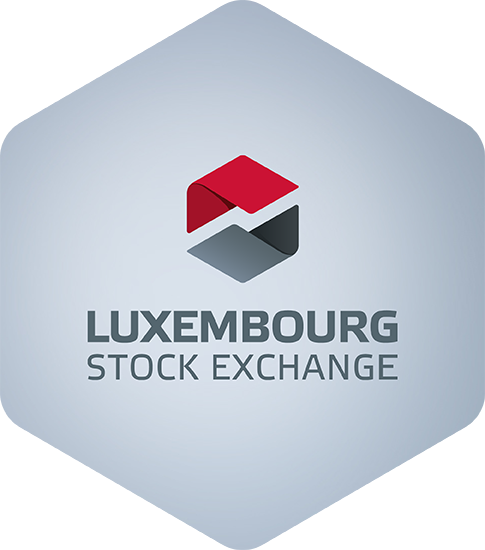3 questions to Laetitia Hamon

Meet the LGX Academy lecturers
Whether you are already part of the LGX Academy or would like to know more about the market, our expert lecturers are bringing you an outlook of the sustainable finance sphere.
In this part, Laetitia Hamon, Head of Sustainable Finance at the Luxembourg Stock Exchange, shares her views on her career, the need for more sustainable finance education and the challenges and opportunities of the market.
Before joining LGX, you worked in several other roles linked to sustainable finance. Why did you choose to specialise in this area of finance over others?
My growing interest in sustainability led me to integrate one of the first master's degrees focused on this topic, which convinced me that I wanted to build my career in this area to help tackle what I consider to be one of the greatest challenges of the 21st century.
Shortly after graduating, I started looking for positions linked to sustainability but, at the time, most of them were in the fields of communication or public relations. I read that as a clear sign that companies were not taking sustainable development as seriously as they should and kept looking for a position where I could make a real difference.
The financial sector struck me as the industry that held the greatest power to make the situation evolve in the right direction, but also the most sceptical to the concept of sustainable finance, which was new back then. The challenge to find concrete elements to convince stakeholders that sustainable finance was neither a niche nor a fad was what pushed me to keep going in what I believe was the right direction.
As the market has kept growing ever since, time showed that sustainable finance was here to stay, but explaining the opportunities and benefits of sustainable finance still motivates me every day.
Through the LGX Academy, the Luxembourg Green Exchange really emphasises the need for more financial education in the market. Why is that?
When the Luxembourg Stock Exchange launched the LGX Academy back in 2020, the main goals were to put its in-house expertise to use to enhance the overall market understanding of the sustainable finance industry, promote these new innovative investment products and reorient capital flows towards projects with positive environmental and social impacts.
For the past few years, the sustainable finance market has been growing exponentially, which resulted in a rapid evolution of the definitions, available products, regulatory framework, and more generally, the industry itself. If we want to further accelerate market developments and achieve the globally set sustainability objectives, we must ensure that all market players are on the same playing field and have sufficient knowledge to make informed decisions on their own sustainability strategy.
Sustainable finance education is equally important for issuers and investors. On the one hand, training issuers will help them feel more comfortable issuing sustainable products by providing them with the necessary knowledge on issuance processes and reporting obligations. On the other hand, the mainstreaming of sustainable finance education will help investors understand the fundamentals and the various investment opportunities, which will reassure them in terms of the reliability of these products and encourage them to invest in sustainable products.
What other challenges and opportunities do you see in the sustainable finance market today?
While more and more sustainability data is published, investors and asset managers are still facing a complex challenge as they need to access structured and comparable data that they can use in an efficient way to build sustainable investment strategies or report on their investments. This is why we launched the LGX DataHub, a centralised database of structured data on close to the entire universe of listed sustainable bonds, not just at LGX but on exchanges throughout the world. Through the LGX DataHub, our expert team make pre-issuance and post-issuance information available in a structured and searchable form.
In parallel, we support the harmonisation of taxonomies and standards to ensure that the market will not be further fragmented. This would indeed be detrimental to both issuers and potential investors as it makes issuance processes more complicated and cost-heavy and creates mistrust in the market. Today more than ever, a common language is needed to mitigate these risks.
But data and the harmonisation of taxonomies and standards are not enough. With the wave of regulations related to sustainable finance in Europe, we also need to ensure the applicability of future regulations and encourage a pragmatic approach when creating new processes. As the LGX team has been working with green, social, sustainability and sustainability-linked bonds for years, their practical knowledge of the market can help LGX Academy students understand how regulations can be applied to their business.
Written by Lorraine Bedo

